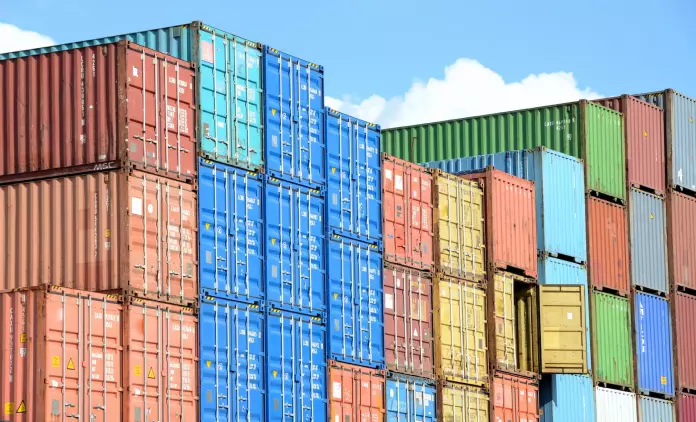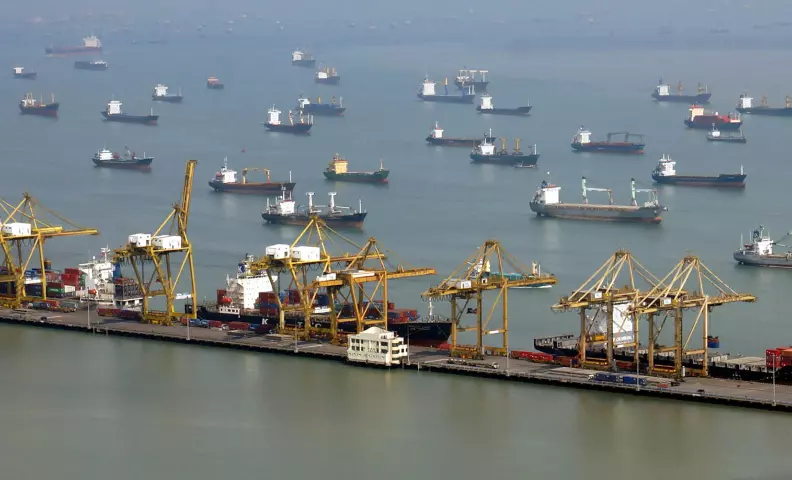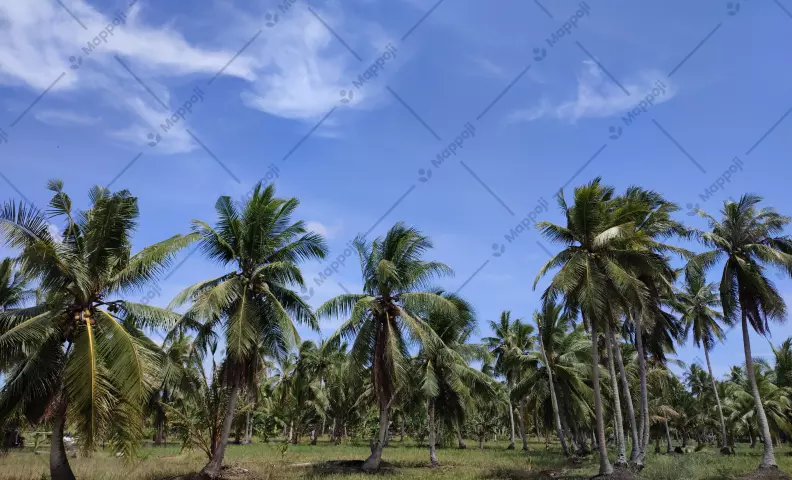Apr 6, 2023 | Insights
The Role of Containers in Facilitating the Export and Import of Coconut

Achmad Alimin

Containers are stacked in the port. Image Credit: Paul Teysen, Unsplash
Mappoji - The global demand for coconut has been on the rise in recent years, driven by the
growing popularity of coconut-based products and the increasing recognition of their health
benefits. As a result, the export and import of coconut-related goods have become an essential part
of international trade. In this context, containers play a crucial role in ensuring the efficient
and safe transportation of these products across borders. Let's explore the significance of
containers in facilitating the global trade of coconut.
Protection and Preservation
Containers provide a secure and controlled environment for the transportation of coconut. These
products are often sensitive to external factors such as moisture, temperature, and contamination.
By using containers, exporters and importers can protect the quality and integrity of coconut-based
goods throughout the supply chain. Containers offer a barrier against humidity, pests, and other
potential sources of damage, ensuring that the products arrive at their destination in optimal
condition.
Standardization and Efficiency
Containers offer a standardized unit for packing and shipping coconut. They come in various sizes and
configurations, allowing exporters to choose the most suitable container type based on the volume
and nature of the products being transported. The standardization of containers enables streamlined
logistics processes, as containers can seamlessly move between different modes of transportation
such as ships, trucks, and trains. This improves efficiency, reduces handling time, and minimizes
the risk of damage or loss during transfer.
Flexibility and Versatility
Containers provide exporters and importers with flexibility in managing their supply chains. The
modular nature of containers allows for efficient consolidation of coconut products and their
derivatives, enabling exporters to optimize space and reduce shipping costs. Containers can
accommodate a variety of coconut-based goods, including whole coconuts, coconut oil, coconut milk,
desiccated coconut, coconut flour, and coconut water. This versatility allows exporters and
importers to cater to diverse market demands and expand their product offerings.
Intermodal Connectivity
Coconut is traded globally, requiring extensive transportation networks to reach international
markets. Containers offer seamless intermodal connectivity, enabling efficient transfer between
different modes of transportation. Exporters can transport coconut products from the source to the
port via trucks, load them onto ships for long-distance transportation, and then transfer them to
trucks or trains at the destination port for further distribution. This intermodal connectivity
ensures a smooth and uninterrupted flow of coconut-based goods throughout the export and import
process.
Traceability and Compliance
Containers play a vital role in ensuring traceability and compliance with international trade
regulations. They provide a controlled environment for proper labeling, documentation, and
inspection of coconut. Exporters and importers can track the movement of containers through the use
of tracking technologies, ensuring transparency and accountability in the supply chain. Containers
also enable compliance with sanitary and phytosanitary measures, ensuring that coconut products meet
the required quality and safety standards imposed by importing countries.
Sustainability Considerations
As the global focus on sustainability intensifies, the use of eco-friendly containers becomes
increasingly important. Many shipping companies and logistics providers are embracing sustainable
practices by using containers made from recyclable materials and implementing energy-efficient
transportation methods. These initiatives reduce the environmental impact of container shipping and
contribute to the overall sustainability of the coconut trade.
In conclusion, containers play a pivotal role in facilitating the export and import of coconut. They
ensure the protection, standardization, and efficient transportation of these products, enabling
exporters and importers to meet the global demand for coconut-based goods. By leveraging the
benefits of containers, the coconut industry can continue to thrive, expanding its reach to new
markets and satisfying consumer preferences worldwide.
We look forward to hearing from you and to the possibility of working together. Please don't hesitate
to contact us. Our team is always happy to help and can provide you with
the information you need to make an informed decision.




